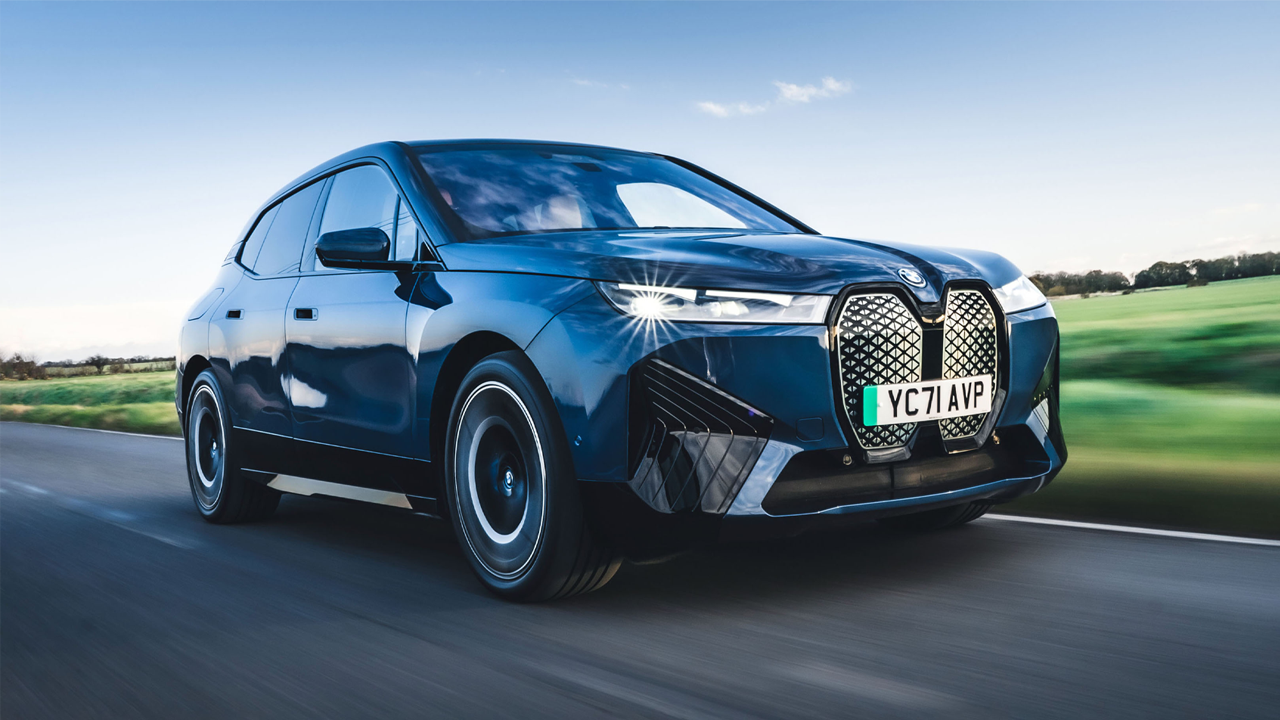Electric cars are becoming more popular as people become increasingly aware of the environmental impact of gasoline-powered vehicles. There are many benefits to owning an electric car, especially when it comes to helping the environment. While there are still some drawbacks to electric cars, the benefits far outweigh the cons.
One of the biggest benefits of electric cars is that they don’t emit harmful pollutants into the air like gasoline-powered vehicles do. This can greatly reduce air pollution and help to combat climate change. Additionally, electric cars are much more energy efficient than traditional cars, meaning they require less energy to drive the same distance. This can not only help to reduce emissions, but also costs associated with owning a car.
| Pros | Cons |
|---|---|
| – Lower operating costs | – Higher upfront cost |
| – Better for the environment | – Limited charging infrastructure |
| – Reduced dependence on foreign oil | – Limited range |
While the cost of electric cars may be higher initially, there are many government incentives available to help offset these costs. In addition, the maintenance required for an electric car is much lower than that of a gasoline-powered vehicle due to the simplicity of electric car technology. There are fewer moving parts and generally less wear and tear on the car overall.
One of the main challenges with owning an electric car is the need for a reliable charging infrastructure. However, as more and more people switch to electric cars, the demand for charging stations will increase and more stations will be built. Additionally, the battery life and range of electric cars is constantly improving, making them more practical for longer trips.
In conclusion, there are many environmental benefits of owning an electric car. While there are still some challenges to overcome, the pros definitely outweigh the cons. If you’re in the market for a new car, considering an electric car could be a great way to not only save money, but also help protect the environment.
 Lower Operating Costs: How Electric Cars Can Save You Money in the Long Run
Lower Operating Costs: How Electric Cars Can Save You Money in the Long Run
Electric cars have become increasingly popular in recent years due to their benefits such as being environmentally friendly and cost-effective in the long run. One of the biggest pros of electric cars is the potential for lower operating costs compared to gasoline-powered cars. Although the upfront cost of purchasing an electric car may be higher, the savings on fuel and maintenance expenses can be significant over time.
One of the most significant drawbacks of electric cars is their range limitations, which can affect the daily usage of the vehicle. However, as technology has improved, the range of electric cars has increased, and so has the availability of charging stations, which addresses the issue of infrastructure challenges. Electric car owners can now easily access charging stations in various locations, making it more convenient to travel long distances without worrying about running out of battery.
| Costs | Gasoline Cars | Electric Cars |
|---|---|---|
| Upfront Cost | Low/Mid-range prices | High prices |
| Fuel | Gasoline prices | Electricity prices (lower) |
| Maintenance | Oil changes, engine repairs | Minimal, battery replacements |
In addition to charging and range, electricity is typically less expensive than gasoline, making cost savings even more significant in the long run. Moreover, electric cars have significantly fewer moving parts, cutting down on maintenance and repair expenses. Routine battery replacements are one of the only significant costs throughout the life of the vehicle.
With all these factors considered, electric cars are beneficial for those looking to save money on fuel and maintenance expenses in the long run. Although the upfront investment may seem costly, the pros outweigh the cons in the grand scheme of things, making electric cars a better investment in the long run. In addition, the implementation of government incentives can further improve accessibility and affordability of electric cars.
 Charging Infrastructure: The Challenges of Owning an Electric Car
Charging Infrastructure: The Challenges of Owning an Electric Car
Electric cars are becoming more and more popular as people begin to realize the benefits of owning one. Not only are they better for the environment, but they can also save you money in the long run. However, one of the biggest challenges that electric car owners face is the charging infrastructure. Unlike gas-powered cars, electric cars need to be charged regularly to function properly, and this can be a hassle.
One of the pros of electric cars is the fact that they are better for the environment. They emit fewer greenhouse gases than gas-powered cars, which means that they can help to mitigate the effects of climate change. Additionally, they are much quieter than gas-powered cars, which can help to reduce noise pollution. However, one of the cons of electric cars is their limited range. Depending on the make and model, electric cars can typically only travel between 100 and 300 miles on a single charge.
| PROS | CONS |
|---|---|
| Better for the environment | Limited range |
| Lower operating costs | Higher initial cost |
| Quieter than gas-powered cars | Charging infrastructure |
Another benefit of owning an electric car is the lower operating costs. Electric cars are much cheaper to operate than gas-powered cars, since electricity is generally less expensive than gasoline. Additionally, electric cars require less maintenance than gas-powered cars, since they have fewer moving parts that can break down. However, one of the drawbacks of electric cars is the higher initial cost. While the cost of electric cars is coming down, they are still generally more expensive than their gas-powered counterparts.
Perhaps the biggest challenge of owning an electric car is the charging infrastructure. Unlike gas stations, which are ubiquitous, electric charging stations can be difficult to find, especially in rural areas. Additionally, charging an electric car takes much longer than filling up a gas tank. While a gas-powered car can be refueled in a matter of minutes, charging an electric car can take several hours. This can be a major inconvenience for electric car owners, especially if they need to make a long trip.
- In conclusion, while electric cars offer many benefits, they also come with some drawbacks. One of the biggest challenges of owning an electric car is the charging infrastructure. While progress is being made in this area, electric car owners still need to plan their trips carefully to ensure that they have enough charge to get where they need to go. However, as more people switch to electric cars, the infrastructure will continue to improve, making it easier for everyone to make the switch.
 Performance and Driving Experience: How Electric Cars Compare to Gasoline-Powered Cars
Performance and Driving Experience: How Electric Cars Compare to Gasoline-Powered Cars
Electric cars have been becoming more popular in recent years as people look for more eco-friendly ways of transportation. However, many consumers still have concerns about the performance and driving experience of electric cars compared to gasoline-powered cars. Let’s take a look at the pros, cons, benefits, and drawbacks of driving an electric car.
One of the biggest advantages of electric cars is their environmental benefits. Electric cars produce no emissions from their tailpipes, making them cleaner and greener than gasoline-powered cars. They also use less energy and produce less pollution during production, making them a responsible choice for environmentally-conscious consumers. However, one major drawback of electric cars is their charging infrastructure. The lack of charging stations is a major concern for consumers, and finding charging stations can be difficult in some areas.
| Pros | Cons |
| – Electric cars are environmentally friendly | – Charging infrastructure limitations |
| – Lower operating costs compared to gasoline-powered cars | – Limited range on a single charge |
| – Lower maintenance costs due to fewer moving parts | – Higher upfront cost for electric cars |
Another advantage of driving an electric car is their lower operating costs. Electric cars require less maintenance since they have fewer moving parts, and they don’t need oil changes. They also have lower fuel costs since electricity is generally cheaper than gasoline. However, one disadvantage is their limited range on a single charge. While technology is improving, many electric cars still only have a range of around 100-200 miles per charge.
Despite some drawbacks, electric car technology is rapidly improving. Governments are also offering incentives to help consumers purchase electric cars. For those who prioritize environmental concerns and lower long-term costs, electric cars can be a great option. As charging infrastructure continues to improve, we may see more consumers making the switch to electric vehicles in the coming years.
 Battery Life and Range: The Pros and Cons of Current Electric Car Technology
Battery Life and Range: The Pros and Cons of Current Electric Car Technology
Electric cars are becoming increasingly popular due to their environmental benefits and lower operating costs. However, there are still some drawbacks to owning an electric car, such as concerns about battery life and range. In this blog post, we will explore the pros and cons of current electric car technology in terms of battery life and range.
Benefits of electric cars in terms of battery life and range include the fact that they have fewer moving parts than gasoline-powered cars, which means that there is less maintenance required. Additionally, electric cars have a lower cost of ownership over time, because they require less frequent oil changes and other maintenance tasks. Another benefit is that electric cars are extremely quiet and smooth to drive, which can make for a more relaxing driving experience.
| Pros | Cons |
|---|---|
| – No emissions – Lower fuel costs – Instant torque – Quieter ride | – Limited range – Longer charging times – Higher upfront cost – Limited availability of charging infrastructure |
Despite these benefits, there are also some drawbacks to consider. One of the biggest concerns about electric cars is their limited range. While modern electric cars can typically travel around 200-300 miles on a single charge, this is still less than the range of many gasoline-powered cars. Additionally, charging an electric car can take longer than filling up a gas tank, which can be inconvenient for some drivers. Finally, while the cost of electric cars is coming down, they are still more expensive to purchase than many gasoline-powered cars, which can be a barrier for some buyers.
Overall, while there are some challenges to owning an electric car in terms of battery life and range, the benefits may outweigh the drawbacks for many drivers. As electric car technology continues to improve, we can expect that these challenges will become less of a concern, making electric cars an even more attractive option for environmentally-conscious consumers.
 Government Incentives: How You Can Benefit from Purchasing an Electric Car
Government Incentives: How You Can Benefit from Purchasing an Electric Car
With the increasing focus on reducing carbon emissions and combating climate change, electric cars have emerged as a popular alternative to gasoline-powered vehicles in the recent years. One advantage of owning an electric car are the government incentives that are available to encourage their usage. These incentives vary from country to country and may include tax credits, rebates, grants, and other financial benefits.
Pros of these incentives are that they make electric cars more affordable, ultimately encouraging their adoption amongst consumers. For instance, the United States allows up to $7,500 in tax credits for electric vehicles depending on the battery size.
| Benefits | Drawbacks |
|---|---|
| – Tax credits and rebates – Improved air quality due to reduced emissions – Reduced dependence on fossil fuels | – Insufficient charging infrastructure – Cost of maintenance and repairs – Limited range compared to gasoline vehicles |
Cons of the incentives are the limited funds available and the potential for market distortions. Critics argue that government incentives can distort the market and highlight that the cost of the incentives can exceed the benefits of electric car ownership in some cases.
- To get the most of the incentives, it’s important to research the options available in your location, including state and local incentives in addition to federal programs.
At the end of the day, whether the incentives are worth making the switch to an electric car depends on an individuals’ personal circumstances. However, governmental incentives can make electric cars more accessible and ultimately move us towards a more sustainable future.
 Manufacturing and Disposal: The Environmental Impact of Electric Car Production and Disposal.
Manufacturing and Disposal: The Environmental Impact of Electric Car Production and Disposal.
Electric cars are becoming increasingly popular due to their environmental benefits and lower operating costs. However, every technology comes with its own pros and cons. One of the concerns of electric car owners is the impact of the manufacturing and disposal process on the environment.
While electric cars are considered eco-friendly due to their zero emissions, the production process involves mining for rare earth minerals, which contributes to environmental degradation. These minerals are used to make batteries, electric motors, and other components of electric vehicles. The manufacturing process also consumes a large amount of energy, which leads to the release of greenhouse gases.
| Pros | Cons |
|---|---|
| Electric cars have zero emissions, which makes them perfect for environmentally conscious drivers. | The production process of electric cars involves mining of rare earth minerals which contributes to environmental degradation. |
| Electric cars have a lower operating cost compared to gasoline-powered cars, which saves drivers money in the long run. | The manufacturing process of electric cars requires a lot of energy which leads to the release of greenhouse gases. |
| Electric cars are quieter and smoother than gasoline-powered cars, which provides a better driving experience. | The disposal of batteries is a concern as they contain toxic materials. |
The disposal of batteries is another concern for electric car owners. Lithium-ion batteries, which are commonly used in electric cars, contain toxic materials like lead and cadmium that can harm the environment if not disposed of properly. However, the good news is that the recycling rate of lithium-ion batteries is around 60-70%, which means most of these batteries are being reused rather than being sent to landfills.
Overall, electric cars have significant benefits for the environment, but there are also drawbacks associated with the manufacturing and disposal process. The good news is that there is ongoing research and development to improve the sustainability of electric cars, from the use of recycled materials to the development of new types of batteries that are more environmentally friendly. As technology continues to advance, the infrastructure for electric cars is improving, and the maintenance costs are becoming more affordable.



